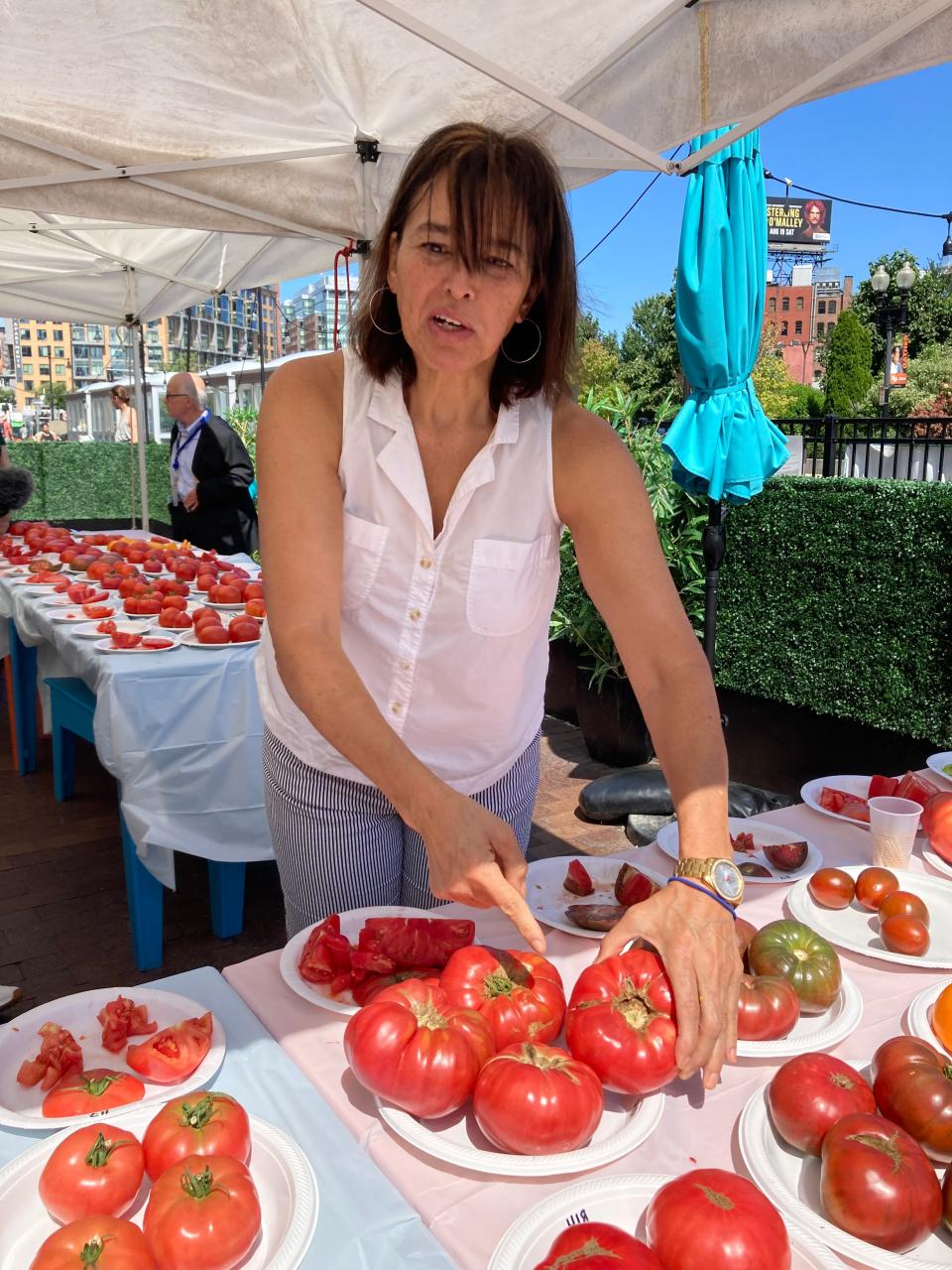Hunger & food insecurity on menu at meeting of state 21st Century Agriculture Commission
- Oops!Something went wrong.Please try again later.

BOSTON — The goal of the state’s new 21st Century Agriculture Commission is to tackle hunger, food insecurity and diet-related diseases while strengthening farming and farming infrastructure in Massachusetts.
And one more task: becoming the first state in the nation to reach the goal of ending hunger by 2030.
“We have a road map to meet that goal,” U.S. Rep. James McGovern, D-Worcester, told the group attending the commission’s fifth meeting since its founding earlier in the year. “I will be the wind at your back.”
The commission’s goals were discussed Thursday by the state legislators leading the commission, food bank and agricultural experts, and by McGovern.
“We don’t want anyone to go to bed hungry or worrying about food,” Sen. Jo Comerford, D-Northampton, one of the leaders of the commission, said.
Increasing food independence in Mass.
Investments in agricultural infrastructure would help the state achieve an ancillary goal, to grow or produce at least 30% of the food needed to feed its residents, also by 2030. The need to move to food independence was highlighted by the pandemic and climate change, including supply chain issues, food processing issues and the toll taken by flooding rains, hurricanes, wildfires and drought.
“As we face climate change, farmers will need as many tools as possible to adapt,” said J. Harrison, interim director of the Massachusetts Food Policy Collaborative. The group set out to research the work needed for the region to become more food-independent in 2019. It is working on a report, “New England Feeding New England: Cultivating A Reliable Food Supply Project.”
The 10-year initiative is designed to prepare the region for system shocks such as climate-related weather events and public health emergencies. Its aim is to increase regional food production for local consumption and to improve the system's reliability by strengthening supply chains.
Harrison said that achieving the goal of greater food independence by 2030 will require dedicating property the size of Rhode Island to agriculture and increasing investment in the region's fisheries.
Massachusetts already supports local farmers through the Healthy Incentives Program, which immediately refunds SNAP benefits used to buy fresh products at farmers markets and also promotes local food through its support of farmers markets and the Massachusetts Grown program.
The state’s regional food banks have formed partnerships with local farms and farming cooperatives that help supply them with a portion of the fresh produce distributed by the organizations.
Teaching people of color about farming
Experts said Massachusetts must do more to support its smaller family farms by investing in farming infrastructure, saving arable land from development and opening access to farming and farmland to Indigenous communities and farmers of color.
To that end, the Food Bank of Western Massachusetts has initiated several programs to educate and encourage farmers from communities of color.
The pilot program teaches new farmers how to manage a farm and grow food, and affords them access to land, said Andrew Morehouse, the food bank’s executive director. The organization owns two farms that will serve as incubators for the program and has already identified a Latino farmer from Puerto Rico who will serve in the first apprenticeship.
While Morehouse applauded the drive to end hunger in Massachusetts by 2030, he said ending food insecurity is “trickier.” While the state has a strong food assistance network that stretches across the commonwealth and strong programs supporting agriculture, he said Massachusetts must pass policies and programs to address the root causes of food insecurity.
“We don’t want people to have to line up at food pantries and food banks to access healthy food,” Morehouse said.
One in three food-insecure
One in three Massachusetts residents suffers from food insecurity, with that number increasing in communities of color and the LGBTQ population, according to Kate Adams, policy director at the Greater Boston Food Bank. The bank services 600,000 people a month in 190 Eastern Massachusetts communities from Gloucester to Cape Cod and gives out 100 million pounds of food through 600 partner organizations a year.
In Western Massachusetts the demand for food is increasing. In August, the most recent data available to Morehouse, the food bank serviced 107,000 residents. That number increased from 82,000 in February and seems to be on its way to 120,000, the peak the bank hit in 2020 at the height of the pandemic.
The combination of inflation, the high cost of housing, transportation and child care is pushing residents to choose between purchasing food and paying for living in the state, Morehouse said.

Morehouse suggested investments into regional transit and other ways to strengthen the supports residents need to live without food issues in the state.
In his remarks to the commission, McGovern thanked and praised the state Legislature for extending the school meals program even after the federal funding for the pandemic-era project ended in 2022.
“Don’t stop there,” McGovern encouraged the legislators attending the meeting. He said he is “fighting like hell” to prevent cuts to federal SNAP benefits, WIC benefits and the Bucks Up program, which supports purchases of fresh fruits and vegetables.
The congressman and several Massachusetts legislators met with President Biden last fall to discuss hunger, nutrition and health, the first conference on hunger at the White House in 50 years.
“It’s time to bring national attention back to food security and eradicating hunger in America,” McGovern said.
This article originally appeared on Telegram & Gazette: One in three Mass. residents are food insecure, many go to bed hungry

